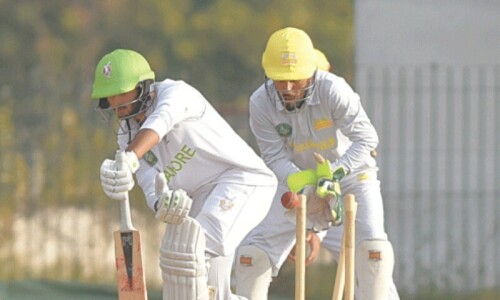MISERY usually follows every rainy season. If it is not infrastructural degradation, it is disease. And so, the mosquito-borne chikungunya has begun to spread. The health ministry has alerted authorities to the disease now endemic in many parts of the country, like dengue fever. Chikungunya is commonly transmitted by infected Aedes aegypti and Aedes albopictus mosquitoes, which primarily bite in the day. Symptoms such as joint pain and fever manifest in about two days and can last up to 12 days. Although hospitals have regularly been receiving dengue and malaria patients, one general physician estimates that 80pc of the people he sees exhibit chikungunya symptoms. While it is rarely fatal, the debilitating joint pain affects the quality of life, especially for the elderly and those with underlying health conditions.
Since Pakistan lacks the chikungunya vaccine, our sole defence against the virus is controlling mosquito populations. Stagnant water following rains has provided these mosquitoes the perfect breeding grounds. The government must act swiftly to ensure drainage of water, proper garbage collection and spraying of insecticides in high-risk areas. For their part, citizens must empty all containers with standing water, dispose waste properly and frequently apply mosquito repellents. Those infected must keep hydrated and rest well. The use of NSAIDs like ibuprofen is not recommended as they raise the risk of bleeding. Considering how much Pakistan is affected by mosquito-borne viruses like malaria — which killed over 608,000 people worldwide in 2022 — dengue, zika and chikungunya, more novel approaches are in order, such as genetically modified Aedes mosquitoes. Since it is female mosquitoes that require blood after they breed, the introduction of genetically modified male mosquitoes into the local populations ensures that the female offspring do not survive. The experiment has been very successful in controlling mosquitoes in parts of Brazil, where populations have reportedly reduced by more than 95pc. We, too, must consider bold steps like these.
Published in Dawn, September 23rd, 2024












































Dear visitor, the comments section is undergoing an overhaul and will return soon.